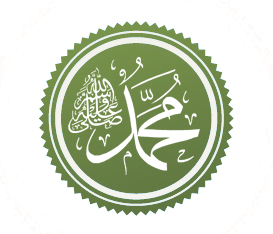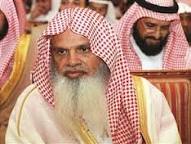 W
WOver the centuries of Islamic history, Muslim rulers, Islamic scholars, and ordinary Muslims have held many different attitudes towards other religions. Attitudes have varied according to time, place and circumstance.
 W
WThe Ahmadiyya branch in Islam has relationships with a number of other religions. Ahmadiyya consider themselves to be Muslim, but are not regarded as Muslim by mainstream Islam. The mainstream Muslims branches call the Ahmadiyya branch with the religious slur "Qadianis". and their beliefs as "Qadianism" which is named after Qadian, the small town in the Gurdaspur district of India's Punjab region where the founder of Ahmadiyya Ghulām Ahmad was born. The Ahmadi Musliims dislike this term, because it has derogatory connotations and because they prefer to differentiate their two movements.
 W
WAn Arabist is someone normally from outside the Arab world who specialises in the study of the Arabic language and culture.
 W
WAslim Taslam is a phrase meaning "submit and you will get salvation", taken from the letters sent by the Islamic prophet Muhammad to various kings and rulers in which he urged them to convert to Islam.
 W
WThe Quran, the central religious text of Islam, contains references to more than fifty people and events also found in the Bible. While the stories told in each book are generally comparable, there are also some notable differences. Knowing that versions written in the Hebrew Bible and the Christian New Testament predate the Qur'ān's versions, Christians reason the Qurān's versions as being derived directly or indirectly from the earlier materials. Muslims understand the Qur'ān's versions to be knowledge from an omnipotent God. As such, Muslims generally believe that the earlier versions are distorted through flawed processes of transmission and interpretation over time, and consider the Qur'ān's version to be more accurate.
 W
WThe Constitution of Medina, also known as the Charter of Medina, was drawn up on behalf of the Islamic prophet Muhammad shortly after his arrival at Medina in 622 CE, following the Hijra from Mecca.
 W
WDhimmī or Mu'ahid is a historical term for non-Muslims living in an Islamic state with legal protection. The word literally means "protected person", referring to the state's obligation under sharia to protect the individual's life, property, as well as freedom of religion, in exchange for loyalty to the state and payment of the jizya tax, in contrast to the zakat, or obligatory alms, paid by the Muslim subjects. Dhimmi were exempt from certain duties assigned specifically to Muslims but were otherwise equal under the laws of property, contract, and obligation.
 W
WThe Dhimmi: Jews and Christians Under Islam is a book by Bat Ye'or. The book was first published in French in 1980, and was titled Le Dhimmi : Profil de l'opprimé en Orient et en Afrique du Nord depuis la conquête Arabe. It was translated into English and published in 1985 under the name The Dhimmi: Jews and Christians Under Islam.
 W
WAli Bin Abdur Rahman Al Huthaify is a Saudi imam and khateeb of the Al-Masjid an-Nabawi, and a former Imam of Quba Mosque. His style of reciting the Qur’an in a slow and deep tune is widely recognised.
 W
WIslam and Dhimmitude: Where Civilizations Collide is a book by Bat Ye'or.
 W
WThe Druze is an Abrahamic monotheistic religion who consider Shuaib as an ancestor of the Druze, who revere him as their spiritual founder and chief prophet. It is based on the teachings of Hamza ibn Ali ibn Ahmad and the sixth Fatimid caliph, al-Hakim bi-Amr Allah, and Ancient Greek philosophers such as Plato, Aristotle, Pythagoras, and Zeno of Citium. Druzites are an Arabic-speaking esoteric ethnoreligious group originating in Western Asia who self-identify as The People of Monotheism (Al-Muwaḥḥidūn).
 W
WKafir is an Arabic term which, in the Islamic tradition, refers to a person who disbelieves in God as per Islam, or denies the authority of God, or rejects the tenets of Islam. The term is often translated as "infidel", "pagan", "rejector", "denier", "disbeliever", "unbeliever", "nonbeliever". The term is used in different ways in the Quran, with the most fundamental sense being "ungrateful". Kufr means unbelief, "to be thankless", "to be faithless", or "ingratitude". Its opposite is īmān or faith.
 W
WMohammedan is a term for a follower of Muhammad, the Islamic prophet. It is used as both a noun and an adjective, meaning belonging or relating to, either Muhammad or the religion, doctrines, institutions and practices that he established. The word was formerly common in usage, but the terms Muslim and Islamic are more common today. Though sometimes used stylistically by some Muslims, a vast majority consider the term a misnomer.
 W
WThe Musalla complex, also known as the Musallah Complex or the Musalla of Gawhar Shah, is a former Islamic religious complex located in Herat, Afghanistan. The 15th-century complex is in ruins today. The complex ruins consist of the five huge 55 metre Musallah Minarets of Herat, mausoleums of Mir Ali Sher Navai, Sultan Husayn Mirza Bayqara and the ruins of a large mosque and a madrasa complex. Construction on the complex was begun in 1417 under Queen Goharshad Begum, the wife of Timurid ruler Shah Rukh who established Herat as the capital of the Timurid Empire.
 W
WIn Islamic law, najis means ritually unclean. According to Islam, there are two kinds of najis: the essential najis which cannot be cleaned and the unessential najis which become najis while in contact with another najis.
 W
WSeeing Islam As Others Saw It: A Survey and Evaluation of Christian, Jewish and Zoroastrian Writings on Early Islam from the Studies in Late Antiquity and Early Islam series is a book by scholar of the Middle East Robert G. Hoyland.
 W
WSai Baba of Shirdi, also known as Shirdi Sai Baba, was an Indian spiritual master who is regarded by his devotees to be a manifestation of Sri Dattaguru and identified as a saint and a fakir. He was revered by both his Hindu and Muslim devotees during, as well as after his lifetime.
 W
WTaḥrīf is an Arabic term used by Muslims for the alterations which Islamic tradition claims Jews and Christians have made to the revealed books, specifically those that make up the Tawrat, Zabur and Injil.
 W
WThe Third Choice: Islam, Dhimmitude and Freedom is a book written by Mark Durie, with a Foreword by Bat Ye'or. It deals with the status of non-Muslim populations after the conquest of their lands by Muslims. The Third Choice was short-listed for Australian Christian Book of the Year, 2010.